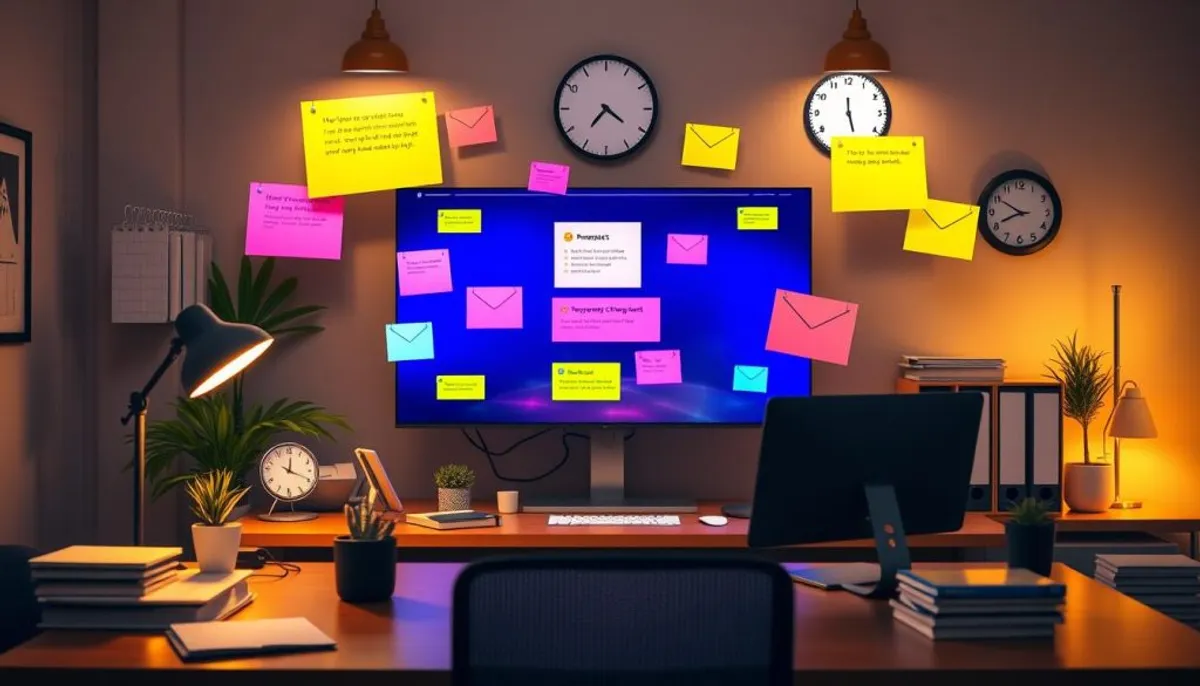Running a business can be tough, especially with cash flow. Late payments and unpaid invoices can mess up your plans. They hurt your bottom line and damage customer relationships. Let’s explore how to handle unpaid bills.
Imagine you’ve finished a project and sent out the invoice. But the payment is late. Days turn into weeks, and you face a cash crunch. This is a common problem many businesses face, but there are solutions.

Did you know businesses with invoicing systems often face unpaid bills? Clients might say they lost the bill or need time to check their records. These issues can cause cash flow problems, even leading to business failure if not fixed quickly.
Unpaid invoices affect more than just money. They can waste your time and resources, lowering productivity and profits. They can also harm your customer relationships and reputation. In some cases, you might have to take legal action, which adds more stress.
Key Takeaways
- Unpaid invoices can severely impact cash flow and business operations
- Clear payment terms on invoices reduce the risk of late payments
- Sending reminders and not delaying invoice transmissions can help prevent late payments
- Offering payment plans can help manage unpaid bills without hurting customer relations
- Invoice factoring is an option for obtaining quick cash from unpaid invoices
- Legal action should be considered only for substantial amounts owed
- Upfront payment policies for larger projects can mitigate non-payment risks
Understanding the Impact of Unpaid Invoices
Unpaid invoices can really hurt a business’s finances. They cause cash flow problems, waste time and resources, and can harm customer relationships. Let’s dive into these issues.
Cash Flow Challenges
Late payments can really mess with a company’s cash flow. It’s estimated that about $300,000 is owed in late payments. This makes it hard to pay bills, employees, and invest in growth.
Time and Resource Drain
Dealing with unpaid invoices takes up a lot of time and resources. Research shows that 65% of businesses spend about 14 hours a week on payment collection tasks. This time could be used for more important business activities and keeping customers happy.
| Impact | Statistics |
|---|---|
| Late Payments Owed | $300,000 |
| Time Spent on Collections | 14 hours/week |
| Businesses Affected | 65% |
Damage to Customer Relationships
Going after payments can strain relationships with customers. It’s hard to keep things positive while making sure payments are made on time. This can hurt customer loyalty and future business chances.
Unpaid invoices have big consequences beyond just money. They can stop businesses from growing, with 89% of small-to-medium-sized businesses facing growth limits because of late payments. Also, bad cash flow, often from unpaid invoices, is the main reason for 80% of business failures.
Preventing Unpaid Invoices: Best Practices
Smart payment policies can cut down on late payments. A QuickBooks survey found that businesses spend about 14 hours a week on payment collection. By using effective strategies, you can save time and boost cash flow.
Clear Payment Terms
It’s important to have clear payment terms. Research shows that setting a specific due date can increase on-time payments by eight times. Make sure to include detailed terms on every invoice and talk about them with clients before starting work. This helps avoid misunderstandings and sets clear expectations.
Upfront Deposits
Requiring upfront deposits can protect your business from non-payment risks. Consider asking for partial or full payment before starting a project. This shows the client’s commitment and helps cover initial expenses.
Automated Invoicing Systems
Invoice automation makes billing easier and cuts down on errors. QuickBooks reports that businesses using their automated system get paid twice as fast as those using paper invoices. These systems can send reminders, track payments, and offer various payment options.
| Best Practice | Benefit |
|---|---|
| Clear Payment Terms | 8x increase in on-time payments |
| Upfront Deposits | Reduced non-payment risk |
| Automated Invoicing | 2x faster payments |
By following these best practices, you can greatly reduce unpaid invoices and improve your business’s financial health. Clear communication, upfront agreements, and efficient systems are essential for maintaining good cash flow and strong client relationships.
Effective Communication Strategies for Late Payments
When customers don’t pay on time, it’s important to handle it carefully. Good communication can help get payments back on track without losing customers. Let’s look at some effective ways to deal with late payments.

Begin with gentle reminders. A friendly email or text message is a good start when an invoice is late. In the U.S., 49% of invoices are late. Use automated systems to send reminders on the due date and a few weeks later.
If reminders don’t work, talk to the customer personally. A phone call can be more effective than an email. Listen to their reasons and offer solutions like payment plans. Always confirm agreements in writing.
Professional follow-up is crucial. Offer different payment options like credit cards and online portals. This makes it easier for customers to pay, reducing late payments.
| Communication Method | Effectiveness | Best Practice |
|---|---|---|
| Email Reminders | High | Automate for consistency |
| Phone Calls | Very High | Personal touch, follow up in writing |
| Text Messages | Medium | Quick, convenient for customers |
| Multi-Channel Approach | Highest | Combines all methods for best results |
Using these strategies can help manage late payments and keep customer relationships strong. Clear and consistent communication is key to solving payment issues and improving cash flow.
The Unpaid Invoice: Steps to Take When Customers Don’t Pay
When you face unpaid invoices, a clear plan can help get payments back while keeping things professional. We’ll look at good ways to follow up on invoices and recover debts.
Sending Gentle Reminders
Begin with polite emails about late payments. If that doesn’t work, send a certified letter. Using different ways to contact clients can help a lot. A study by Fair Capital showed 76% of people like phone calls for getting paid back more than emails or texts.
Making Personal Contact
If emails and letters don’t work, try calling the client. A phone call can solve payment problems better than written messages. Be professional but clear about the payment issue during the call.
Offering Payment Plans
If clients are struggling financially, think about a payment plan. This might help you get your money back. But, don’t make plans last more than six months to get paid on time.
| Method | Success Rate | Cost | Timeframe |
|---|---|---|---|
| In-house Follow-up | Varies | Low | 1-3 months |
| Payment Plans | Moderate | Low | Up to 6 months |
| Collection Agencies | 20% average | Up to 25% of recovered amount | 3-6 months |
| Legal Action | High for large amounts | High | 6+ months |
Remember, stopping work until you get paid can help with cash flow and risk. For ongoing payment problems, think about using professional debt recovery services. They can get back up to 80% of what’s owed in some cases.
Legal Options for Recovering Unpaid Invoices
When friendly reminders and personal outreach don’t work, businesses might need to look into legal options. In the U.S., 49% of invoices are overdue. Knowing your legal choices is key to keeping cash flow healthy and protecting your profits.
Small Claims Court
For smaller debts, small claims court is a good choice. In England and Wales, claims up to £10,000 are handled through the small claims track. This makes it simpler for disputes over lower amounts. Scotland and Northern Ireland have similar systems but with different claim limits. It’s often faster and cheaper than full legal battles.
Debt Collection Agencies
Using a debt collection agency can help get overdue payments back. These agencies usually take about 10% of what they recover as their fee. While it means less profit for you, it’s worth it for tough cases or when you can’t handle it yourself.
Legal Action Considerations
For bigger debts, you might need to take legal action. In England and Wales, claims up to £100,000 can be filed online. The fees range from £25 to 4.5% of the claim amount. Think carefully about the costs and potential recovery before starting legal action. Legal battles can take time and harm business relationships, so they’re usually a last resort.
RelatedRelated articles



